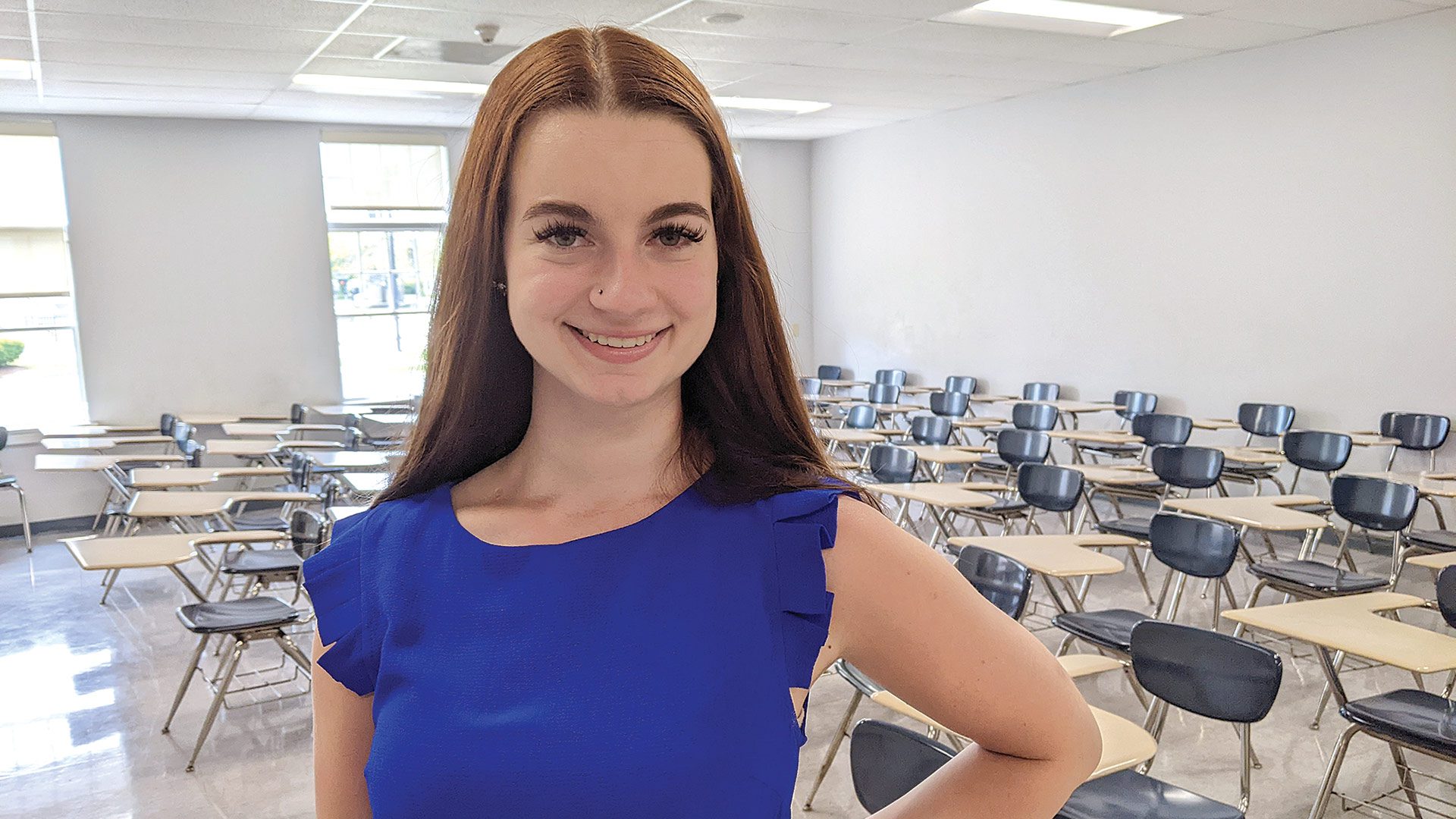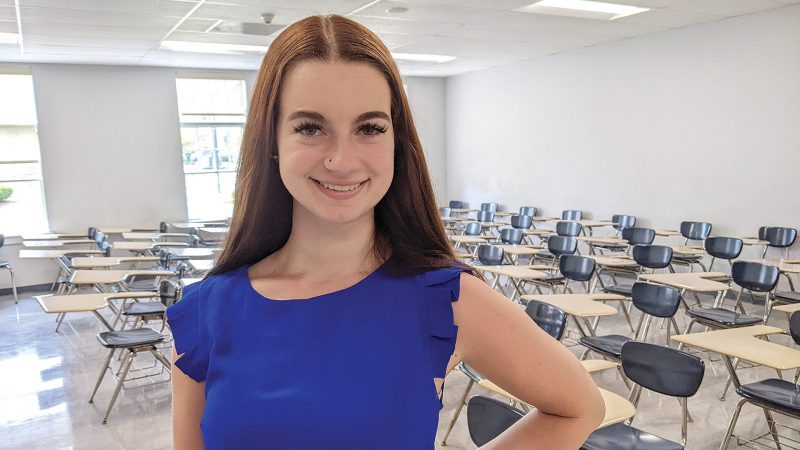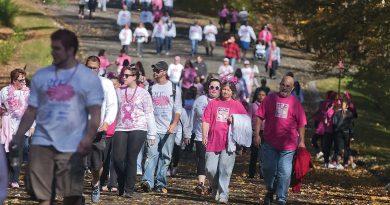Meghan Kalbaugh Sees Opportunity and Impact in Nursing
‘I Need to Be a Nurse’
Meghan Kalbaugh’s mother was a nurse who worked in emergency rooms and on patient floors at local medical centers, including Baystate, Mercy, and Holyoke. Her example was a quiet one.
“Surprisingly, we never really talked about it growing up,” said Kalbaugh, who graduated from American International College (AIC) this spring with a bachelor of science in nursing degree. “It was always just my mom; she was a nurse, and she would come home, and I didn’t really have it in my mind to be a nurse.”
But in high school, Kalbaugh participated in a healthcare-careers program, thinking she wanted to be a veterinarian. She eventually realized that wasn’t for her, but she stayed in the program because her parents convinced her to follow through and finish it.
“So, my last year, I became a CNA because the final year of the program is doing a CNA course that’s completely paid for because it was dual enrollment with Holyoke Community College,” she recalled. “Throughout the course, I fell in love with taking care of people and forming a really special bond with my patients. I came home one day, and out of the blue, I was like, ‘I need to be a nurse. I love this, and I want to further my education.’”
Kalbaugh’s original goal when she enrolled at AIC was pediatrics, and she still loves that work, but a labor and delivery rotation changed her mind, and that has become her preferred setting down the road. “But I’m actually starting my nurse residency at Baystate on July 24, and I’ll be in the heart and vascular unit, because labor and delivery wasn’t hiring new graduates. I figured going to a different unit will still provide me with valuable skills and experience. So I’m really excited; I’ll get some heart and vascular experience and then hopefully, within a year, move over to labor and delivery.”
The past four years weren’t easy for Kalbaugh and her classmates, she said, due to the disruptions caused by the pandemic.
“What draws me in is how rewarding it is, knowing I’m helping people and making an impact in their life and changing lives every day; I absolutely love that.”
“It was really, really hard doing it all online from home, especially not seeing the professors in person and not having lectures in person, and just being alone. The coursework was challenging, and that was a time when we all really needed each other, and we couldn’t be with each other. So it was hard, honestly, managing like the isolation from everyone. I’m a very social person, and I just wanted to be around my peers so we could help each other and talk about concepts and be able to like connect with our professors.”
That said, “I’m happy we got through it as a class and were able to come back in person. I was so relieved. I remember the day that they told us we could come back, and I was so excited. I thought, no more of this awful being alone.”

After all, Kalbaugh is, as she noted, a people person, and she values the connections she can make as a nurse.
“What draws me in is how rewarding it is, knowing I’m helping people and making an impact in their life and changing lives every day; I absolutely love that.”
That’s not the only draw for nurses these days. As hospitals and organizations struggle to fully staff and retain their nursing teams, career opportunities abound.
“Everyone is hiring, and they’re offering great incentives, sign-on bonuses, and there are lots of new positions opening,” Kalbaugh said. “There’s a lot of room for growth in healthcare, too, whether that’s climbing up to manager or supervisor or advancing your practice, like becoming a nurse practitioner. There’s a lot of room for growth.”
That’s why she’ll be back at AIC in the fall to start pursuing her master’s degree: to open up new avenues for career growth.
With a degree beyond the BSN, she noted, “you get to be an advanced-practice provider … and, obviously, there’s a better paycheck, and you have more autonomy. So I’m definitely going to keep going because I can see myself doing that, and I believe I have the capability.”
The three-year master’s program is fully online, except for clinical experiences, she explained, an ideal model for people who are actively working full-time or have children and families and other responsibilities.
“I like how it’s broken into one class at a time to make it more easily manageable for people who are working full-time like me,” she said. “So I’ll be working full-time at Baystate and doing this. My unit manager is pretty awesome; I told her I was going to keep going, and she seems like she’ll be very flexible with my schedule and hours, which is good.
“It’s a great way to keep people moving up and progressing as they learn because so much help is needed,” she added. “I mean, you need nurses working, but you can actually continue your education as well. That’s a cool model. And after my first year at Baystate, they’ll give me some tuition reimbursement as well, which is amazing.”
In short, Kalbaugh is a woman with a plan.
“I’m very excited, and also very nervous because it’s going to be a lot. But challenge hasn’t stopped me before, so I’m excited.”
—Joseph Bednar




